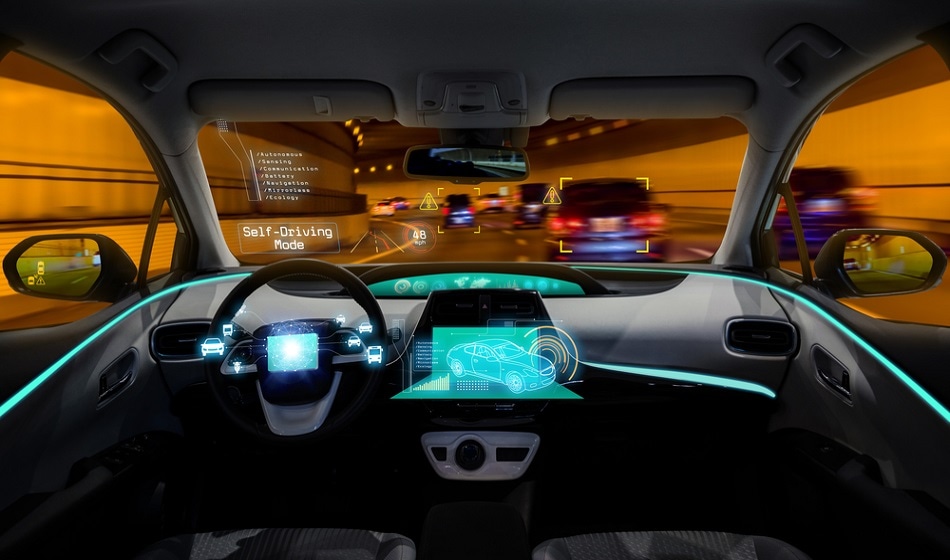Jul 18 2017
Vayyar Imaging announced the launch of its award-winning sensor technology within the automotive and autonomous driving markets on July 13th, 2017.
 chombosan/ Shutterstock.com
chombosan/ Shutterstock.com
Vayyar Imaging is a 3D-imaging Sensor company whose technology makes it possible to see through materials, sensing liquids and mapping 3D objects. The 3D sensors allow innovative safety improvements, enhance the security of autonomous and self-driving vehicles and also enable new efficiencies in cargo management. 3D sensors are considered to be unique in their versatility. A single sensor is capable of delivering extensive sensing capabilities that earlier needed the integration of multiple technologies and sensors. Vayyar's sensors are also cost-effective, safe, mobile and operate in any environmental and lighting condition. These sensors respect privacy as they do not capture an optical image.
The automotive market has always been at the forefront of technical evolution, and as we move toward autonomous navigation, our vehicles need constant, accurate and new types of information about everything happening both within and outside of the car. We believe this next step forward in the automotive industry will provide safety from obstacles outside the car, as well as monitor the health and safety of people within the car.
Raviv Melamed, CEO and Co-Founder, Vayyar Imaging
How 3D imaging Changes In-Car Monitoring and Safety
The embedded 3D sensors from Vayyar are capable of scanning the interior of a car and providing a real-time picture of everything that takes place inside the vehicle. The sensors monitor vital signs from a distance and thus send an alert to a parent if a pet or an infant has been left in the car or alert a driver who is dozing off. Post-accident, 3D sensors have the potential to identify the state of survivors within the vehicle and also relay information to emergency responders. In the autonomous driving sector, these sensors produce a 3D image that allows autonomous cars to detect the number of people within a car and in case of an accident, optimize airbags in order to deploy and inflate depending on the size of the passengers in the vehicles and the seating location.
360° Protection Inside and Outside the Vehicle
3D imaging sensors developed by Vayyar can be employed to remove all blind spots, detecting nearby cyclists, obstacles, vehicles that are extremely close and self-parking, supplying perimeter details both horizontally or vertically or small or large vehicles. Vayyar's sensors are considered to be agnostic to environmental factors such as fog, heat, excessive light or darkness, allowing them to provide a greater level of safety.
Automotive Production Lines
Vayyar’s exclusive sensing and tracking technologies offer a safe human-robot co-working environment along with refined collision avoidance and accurate measurements that guarantee increased productivity and safer interaction between machines, such as small autonomous vehicles, forklifts and robots, and humans.
Cargo Management Optimization
3D sensors from Vayyar also help in volumetric sensing and increased effectiveness in cargo management. These sensors will be used to map available space, the distribution of objects inside the container, and also offer cargo integrity while in transit by identifying movements of the cargo in real-time when placed inside transport vehicles. Vayyar's sensors provide trains, buses, vans and trucks with another layer of digitization in order to optimize utilization both at the vehicle and fleet levels.
A recent report by Research and Markets highlighted that the global 3D sensor market is assured to grow at a compounded annual growth rate (CAGR) of around 17.4% over the next decade, touching approximately $12 billion by 2025. Vayyar is well established to be the market leader in 3D sensors, and started producing its powerful 3D imaging sensor technology in the year 2011 in order to help in the detection of breast cancer. Since then, the company has expanded its 3D sensor providing additional markets beyond automotive, and also building partnerships with top Fortune 500 companies in different industries including, construction, smart buildings, smart home, DIY, AR and VR, personal health, robotics and agriculture.